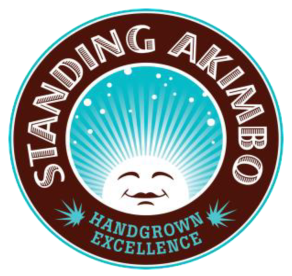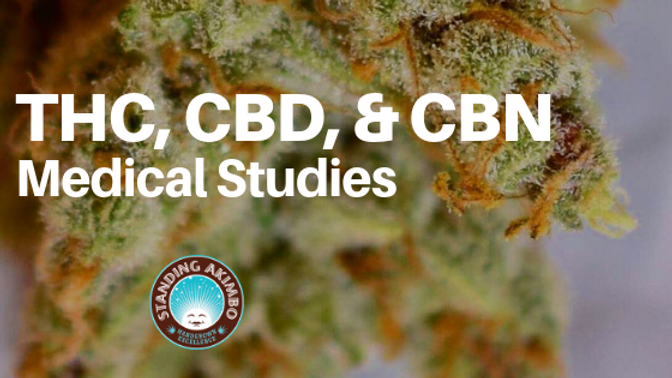What is a Cannabinoid?
Consumers of cannabis, both for recreational and medical purposes, may be curious to know why exactly cannabis works the way it does. Enter the cannabinoids, a class of chemical compounds that occur naturally in the human body (endocannabinoids) and cannabis plants (phytocannabinoids). When phytocannabinoids encounter the endocannabinoid receptors in our central nervous system, the interaction produces various physiological effects.
Cannabinoids make up 66 of the 480 naturally known components of the cannabis plant, many of which have not been found in any other plant. The famous cannabinoids, THC and CBD, are widely researched – THC produces the popular psychoactive effects, while CBD might be the most abundant cannabinoid found in your favorite Denver medical marijuana dispensary. A relative newcomer, CBN, is also making waves in the research world. Let’s learn more about the main types of cannabinoids so you can choose what will work best for you.
THC
THC, or tetrahydrocannabinol, is the chemical responsible for most of marijuana’s psychological effects. According to LiveScience, THC and other phytocannabinoids interact with endocannabinoid receptors concentrated in areas of our brain associated with thinking, memory, pleasure, coordination and time perception. In particular, THC stimulates these receptors to release dopamine, causing euphoria, and also interacts with our hippocampus, altering our ability to form new memories.
THC has been shown to help with relaxation and pain-relief. When used properly, studies have shown that THC can also reduce nausea and vomiting as a result of cancer medication, increase the appetites of AIDS patients, and improve short-term memory in small doses. Be sure to discuss proper dosage and use with your local medical marijuana dispensary to ensure you obtain these effects.
CBD
CBD, or cannabidiol, is the second most prevalent ingredient of the cannabis plants and has been used for medicinal purposes for over 3,000 years. Used by itself, CBD does not produce the ‘high’ that is seen with use of THC. According to ProjectCBD, CBD does not bind to either of the two main cannabinoid receptors (CB1and CB2), but rather modulates several non-cannabinoid receptors and ion channels. For example, CBD can interact with serotonin receptors (implicated in neurological processes associated with anxiety, addiction, pain perception and sleep, amongst others) and vanilloid receptors (associated with pain perception, inflammation, and body temperature).
As such, CBD has been touted for a wide variety of medical issues. The most striking example is the effect of CBD on patients with seizure disorders. Dravet syndrome and Lennox-Gastraut syndrome, both forms of childhood epilepsy, typically do not respond to anti-seizure medications but have been shown time and time again to respond positively to CBD. In addition, there is strong scientific evidence that CBD can alleviate symptoms associated with anxiety, insomnia, and chronic pain.
CBN
CBN, or cannabinol, is a lesser-known compound in marijuana but research is increasing thanks to it’s unique set of effects. CBN can be produced in two ways – THC converts to CBN as the plant ages, or CBN can be produced from extracted THC by exposing it to oxygen and heat. CBN is not as easy to find as THC and CBD, but don’t worry – products are coming, and quick. Soon you’ll be able to find edibles, tinctures, dabs and oils of CBN in your local medical marijuana dispensary.
Early studies are demonstrating that CBN rivals CBD in the medical marijuana department. According to Steep Hill Labs, 5mg of CBN is as effective as 10mg dose of diazepam, a mild pharmaceutical sedative. For patients struggling with insomnia, CBN could be an effective natural alternative to OTC medication. CBN showed antibacterial properties and demonstrated an ability to treat MRSA in a 2008 study. In another study, CBN also demonstrated an ability to reduce tumor size in one form of lung cancer, leading scientists to theorize that this cannabinoid might hold other cancer-fighting abilities. Finally, CBN may promote bone growth, making it a potential treatment for fractures and osteoporosis.
Scientists are just starting to scratch the surface of the dozens of cannabinoids to discover their beneficial effects. Stop by Standing Akimbo today to discuss the different strains and learn what works best for you.
#2019 #endocannabinoid #cannabisplant #Seizures #RecreationalCannabis #MedicalResearch #medicalcannabisdenver #medicalcannabis #phytocannabinoids #phytocannabinoid #endocannabinoids #cannabis #thc #cbd #cbn #cannabidiol #cannabinol #dravetsyndrome #AIDS #cancer #localmedicalmarijuanadispensary #MedicalMarijuana #ChronicPain #anxietyrelief





